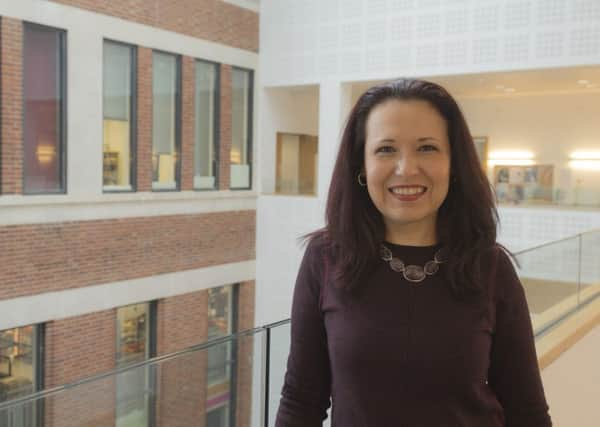‘National approach needed to boost women in engineering’


Helen Wollaston, director at the WISE campaign, said the issue of gender diversity in science, technology, engineering and maths (STEM) roles should be tackled in a strategic, joined-up way, similar to how sustainability in business is addressed.
Ms Wollaston told The Yorkshire Post: “This is an issue that affects the whole of the UK economy.
Advertisement
Hide AdAdvertisement
Hide Ad“There needs to be a national strategy with everybody working towards it, like is done in climate change and energy.
“Everybody knows what that is, most businesses have a strategy around it. We’d like the same approach.”
Recently-published research from WISE showed that in 2014, just 13 per cent of people working in occupations classed as STEM were women.
Around one in 20 (5.7 per cent) professional engineers are female.
Advertisement
Hide AdAdvertisement
Hide AdWhile take-up of biology and chemistry at A-Level has continued to rise among girls, the number of females studying physics, chemistry and maths has remained largely static.
The number of girls completing STEM apprenticeships in most disciplines also remains static or is falling.
Ms Wollaston said the right messages must be given to girls and their parents about the type of people who work in science and engineering.
Employers must also work to address workplace issues that may make some sectors less welcoming for women, from the cultural tone of some more traditionally male-dominated workplaces to practical matters such as appropriate toilet facilities and safety equipment.
Advertisement
Hide AdAdvertisement
Hide AdShe said: “The way we’ll get both of those is to work with companies, schools and universities in a concerted, joined-up way, rather than doing it piecemeal.
“We need to bring it under one umbrella so people are working together, rather than different approaches in different directions.”
Research shows that, for businesses with greater diversity among their boards and teams, there will be a bottom-line benefit, she added.
Professor Elena Rodriguez-Falcon from University of Sheffield said many of the barriers to women in STEM roles in the UK relate to misleading perceptions.
Advertisement
Hide AdAdvertisement
Hide AdProfessor Rodriguez-Falcon, whose background is in mechanical engineering, said: “The word ‘engineer’ in the UK is used for a variety of jobs that are not necessarily engineering.
“Parents at home thinking about engineering and they think it’s not a job for girls.”
There is also a lack of representation of these roles in popular culture.
“The TV programmes people see show you what lawyers do, what doctors do, what forensics do but nothing about engineering - maybe because it’s difficult to portray,” she said.
Advertisement
Hide AdAdvertisement
Hide AdRecently, members of the University of Sheffield Women in Engineering Student Society published a children’s book - titled Suzie and Ricky: The Crash Landing - to provide children and parents with an informative and entertaining representation of women in the sector.
Professor Rodriguez-Falcon said: “I want to try and get it into every household in the country if I can. That’s the sort of thing that will start changing the perception and the culture.
“I don’t believe people like me or bigger institutions are going to be able to do anything substantial if it doesn’t come from the family.”